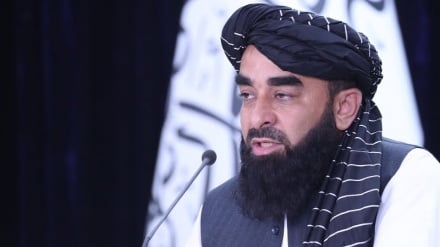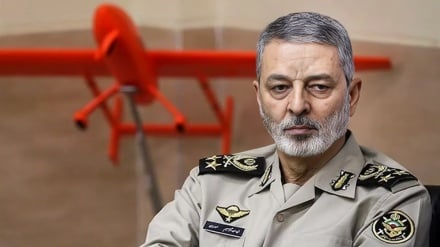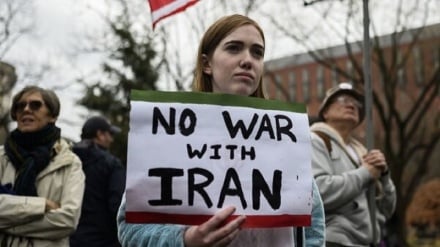Imam Khomeini & Concept of Velayat-e Faqih, Role Model of Islamic Leadership
Today on the second day of the Ten-Day-Dawn celebrations that mark the anniversary of the victory of the Islamic Revolution in Iran, we present you a feature on Imam Khomeini (God bless him) and the Concept of Velayat-e Faqih that serve as Role Model of Islamic Leadership.
God Almighty saved Iran from one of its most critical conditions in history by inspiring His servant Seyyed Ruhollah Musavi Khomeini to mobilize the people against the despotic rule of the British-installed and US-backed Pahlavi regime and to finally throw into the dustbin of history 2,500 years of the tyrannical monarchic system. Imam Khomeini, as a humble devotee of Prophet Mohammad (blessings of God upon him and progeny), strove to serve Islam, and as a qualified Mujtahed gave to the world the dynamic concept of Velayat-e Faqih or Governance Supreme Jurisprudent on the basis of the teachings of the Infallible Imams of the Prophet’s Ahl al-Bayt.
He diligently followed their path to awaken the sleeping consciences of not just the Iranian people, but the Muslims and the oppressed all over the world. It was his firm resolve that saw the power of the people emerge victorious in the face of a armed-to-the-teeth regime that was supported by the domineering powers. His wisdom, insight, piety, courage, and firm resolve, attracted people towards him, and enabled him to establish the Islamic Republic in Iran. The unprecedented welcome by millions of Iranians to him on his return home from 15 years of exile is prove of his charisma that within ten days of his arrival resulted in the victory of the Islamic Revolution. Thereafter, in the next ten years, he proved his mettle to the whole world as the epitome of the Just Islamic Leader, and till this day the personality of Imam Khomeini serves as role model for all aspiring Muslims throughout the world.
Imam Khomeini strove to instill in the virtuous Muslims the concept of God’s vicegerent on earth – a trust given to the Father of the human race, Adam, at the dawn of creation, and which was so admirably handled by all Prophets, culminating in the personality of the greatest of them all, Prophet Mohammad (blessings of God upon him and his progeny). The Prophet of Islam on the express commandment of God proclaimed Imam Ali ibn Abi Taleb (AS) as Vicegerent at the Ghadeer-Khom. This is among the fundamental goals of the Islamic Republic, and this would never have been materialized by a non-religious or non-Muslim leader. As a leading jurisprudent of his age, with firm faith in God and piety as his most potent weapon, he showed to the world that no obstacle can obstruct the path of a divinely-inspired leader. It is impossible to understand the dynamism of the leadership of the Late Imam, without taking into consideration these vital factors. He believed the world and life are worthy, only if the goal is to make them the means of attaining the proximity of God for creating the conditions of prosperity in its real sense for fellow humans, and paving the way for their salvation in afterlife. It means that leadership by itself has no value if it is not at the service of humanity and the virtuous servants of God. The Imam believed that absolute sovereignty belongs to God Alone, and for this reason, he would always refer to himself as a servant of the people. Such a concept and self-purity made his heart receptive to divine inspiration and granted him a special kind of foresight. For instance, in an interview with the famous Egyptian journalist Hassanian Haikal, he once said: I know the nation and I speak on their behalf. I realize what they feel deep down in their heart. I am aware of all weak points; I have witnessed the developments of the past half century. I know the misery resulting from threatening and pressuring the people and I felt it.
It can be said the most dynamic legacy of Imam Khomeini is the concept of Velayat-e Faqih or Governance of Supreme Jurisprudent. In his writings and sayings Imam Khomeini said the concept of Velayat-e Faqih is based on hadith and the narrations from the Infallible Imams. For instance, the Prophet has called the ulema as heirs of the prophets. There is also a hadith from the Prophet that says the ulema of my Ummah are superior to the Israelite Prophets.”
A hadith from Imam Hasan Askari (AS), the Prophet’s 11th Infallible Heir says in view of the long occultation of his son and successor, the 12th Imam: From among the jurisprudents, the one who is righteous, courageous, obedient to the commandments of God, and abstaining from self-desire should be followed.
There is another Hadith from the Imam of the age (May God hasten his reappearance) who explicitly introduces qualified jurisprudents as his successors in his absence and says: “In events, refer to the narrators of our hadith as they are my proof to you and I am the authority of God upon you.”
Imam Khomeini believed that epic and bravery ought to be the main features of the Islamic community and a truly independent Islamic government. He considered the weakness of the Muslim World against the onslaughts of the oppressive powers to be lack of firmness and the spirit of epic. He called on thinkers of the Muslim World to use the power of their speech and pens, in order to help them overcome fears and the false power of the oppressors.
Thus, what is needed today as inspiration for Muslims throughout the world are leaders of the stature of Imam Khomeini, who awakened sleeping consciences and gave to the world the dynamic legacy of Velayat-e Faqih.
Imam Khomeini (God bless his soul) brought with himself the high human and Islamic ideals for the materialization of which people made great efforts. Ideals such as freedom, independence, justice, campaign against oppression.
AS/MG


